CES Summer School
Technology, Big Data and International Relations
28 June - 2 July, 2021
Online
Bio notes
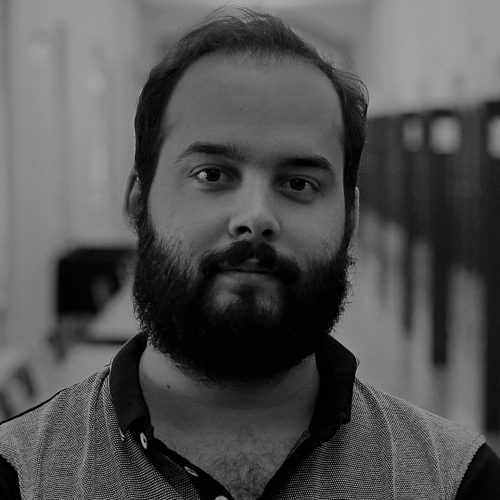
Alexandre de Sousa Carvalho is Associate Researcher at the Centre for International Studies (ISCTE-IUL) and at the Center for Social Studies in Coimbra, where he coordinates the thematic area "Populism and Extreme Masculinities" within the research project DeCode/M. Since February 2017, he has been a Guest Assistant Lecturer at the Faculty of Economics of the University of Coimbra where he lectures at undergraduate and graduate programmes in International Relations, Development, Peace and Security Studies. He is a PhD Candidate in Political Science at ISCTE-IUL in Lisbon and holds a Master's degree in African Peace and Conflict Studies from the University of Bradford, UK, and a Bachelor's degree in International Relations from the University of Coimbra in Portugal. Alexandre has over 10 years of combined research and consulting experience in academic research centres and think-tanks, governmental agencies and non-governmental organizations. His areas of expertise lie in peace and security studies; power-sharing studies; political science and populism; critical internet studies; and gender equality.

André Barrinha is a Senior Lecturer in International Relations at the University of Bath. He has published in high profile journals such as International Affairs, Mediterranean Politics, Third World Quarterly, Journal of Common Market Studies and Journal of European Integration. Dr Barrinha is currently working on cyber-diplomacy as an emerging practice in international relations. He was awarded in 2019, together with Thomas Renard (Egmont Institute), the Best Article in Global Affairs Award for a co-authored piece on cyber diplomacy and the English School. He is one of the coordinators of the UACES RN INTERSECT: Technology-Security-Society interplays in Europe. Between 2016 and 2018 he was one of the conveners of the British International Studies Association European Security Working Group.
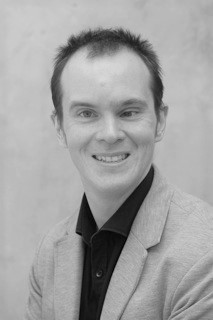
Benjamin Farrand is Reader in Law & Emerging Technologies at Newcastle University. His research focuses on the interaction between law and politics in areas of uncertainty, drawing insights from critical theory, political economy and conceptualisations of power. Areas he has worked on include the control of online disinformation, power relations in legislative change in the field of internet regulation, and the security implications of Brexit for the UK and EU. He has published in journals such as the Journal of Common Market Studies, Oxford Journal of Legal Studies and the Journal of Information Technology and Politics.

Bia Carneiro is a PhD Sociology candidate in the programme "Labour Relations, Social Inequalities and Trade Unionism" at the Centre For Social Studies/Faculty of Economics, University of Coimbra. Her current research applies content analysis and digital methods to explore the online presence of organised labour organisations. She holds a Joint Major in Communication and Latin American Studies from Simon Fraser University, Canada; a specialisation in Social Policy Management from Pontifícia Universidade Católica do Paraná, Brazil; and an MSc Social Policy and Development from the London School of Economics, UK. She is a researcher and the Media & Communications Coordinator for “(De)Coding Masculinities: Towards an enhanced understanding of media’s role in shaping perceptions of masculinities in Portugal” (DeCode/M), a project of the Centre for Social Studies funded by the Foundation for Science and Technology. In between her academic pursuits, Bia has gained more than fifteen years of professional experience in the areas of communications and international development.
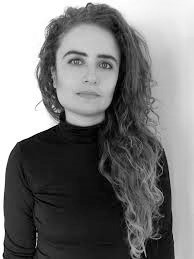
Britt S. Paris is a critical informatics scholar studying how groups build, use, and understand information systems according to their values, and how these systems influence evidentiary standards and political action. She is currently thinking about new Internet infrastructures and current debates over artificial intelligence-generated information objects. Previously, she has published work on Internet infrastructure projects, digital labor, and civic data, analyzed through the lenses of critical, feminist, and de-colonial theory. At Rutgers University, she is an active member of the AAUP-AFT. She co-organizes the Rutgers SC&I Power and Inequality Working Group which is on hiatus during the pandemic. Meanwhile, she co-organizes the Rutgers COVID-19 Communication & Misinformation Working Group with the Institute for Quantitative Biology and in on her department's Research committee. She has her MA in Media Studies from the New School in New York City and her PhD in Information Studies from the University of California, Los Angeles. She did her postdoctoral research at Data & Society Research Institute and remains affiliated there. She joined the faculty at Rutgers University as an Assistant Professor in the Department of Library and Information Science in Fall 2019.

Catarina Maçãs has an Undergraduate and Master degree in Design and Multimedia from University of Coimbra. Currently, she is enrolled in the Doctoral Program of Information Science and Technology of the University of Coimbra and is a teaching assistant at the Department of Informatics Engineering of the University of Coimbra. She is also a researcher at the Computational Design and Visualization Lab (CDV), which is part of the Centre for Informatics and Systems of University of Coimbra (CISUC). Her research focuses on Information Visualization, more specifically in the visualization of temporal events. She is interested in exploring time-varying data and in creating visualizations that can highlight the inherent rhythmic behaviors, and corresponding patterns and trends. Also, she aims to develop visualizations that entice the user to explore the visual elements and gather a deeper understanding of the represented data.
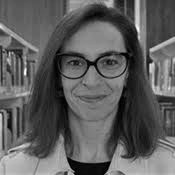
Daniela Nascimento has a PhD in International Politics and Conflict Resolution from the University of Coimbra, a bachelor degree in International Relations by the same University and a European Master's Degree in Human Rights and Democratisation from the Inter-European Center for Human Rights and Democratisation. She is a researcher at the Peace Studies Group of the Center for Social Studies and professor at the International Relations Group at the School of Economics of the University of Coimbra where she teaches at the undergraduate and graduate levels in International Relations, including the MA in Peace, Security and Development Studies, and the PhD in International Politics and Conflict Resolution (with a performance evaluation of excellent for 2011-2013 and 2014-2016). Her research interests focus on peace studies, human rights, peacebuilding, humanitarian action, especially in the African context and Timor Leste. She has published various chapters and peer-reviewed articles in national and international journals and books, as well as participation in various research projects with national and international funding. Her latest publication is International Conflict Resolution and Peacebuilding Strategies. The Complexities of war and peace in Sudan (Routledge, 2017).
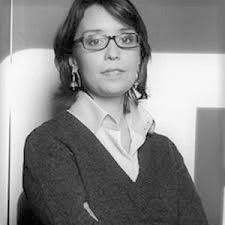
Inês Amaral is an Associate Professor at the Faculty of Arts and Humanities of the University of Coimbra, where she is the Director of the Undergraduate Program Studies in Journalism and Communication. PhD in Communication Sciences from the University of Minho, Inês is a researcher at the Centre for Studies in Communication and Society. She has been a researcher in international and national projects such as European Media Literacy Education Study, News as Democratic Resources – Cross-Cultural Comparative Research, Media in Action, and Digital Rights: A Password for the Future. Currently, she is a member of the project team “(De)Coding Masculinities: Towards an enhanced understanding of the media’s role in shaping perceptions of masculinities in Portugal”. Her main research areas include audiences and media consumption; social networks, participation and social media; media and digital literacy; gender and media. Inês Amaral works with digital methods and social network analysis.
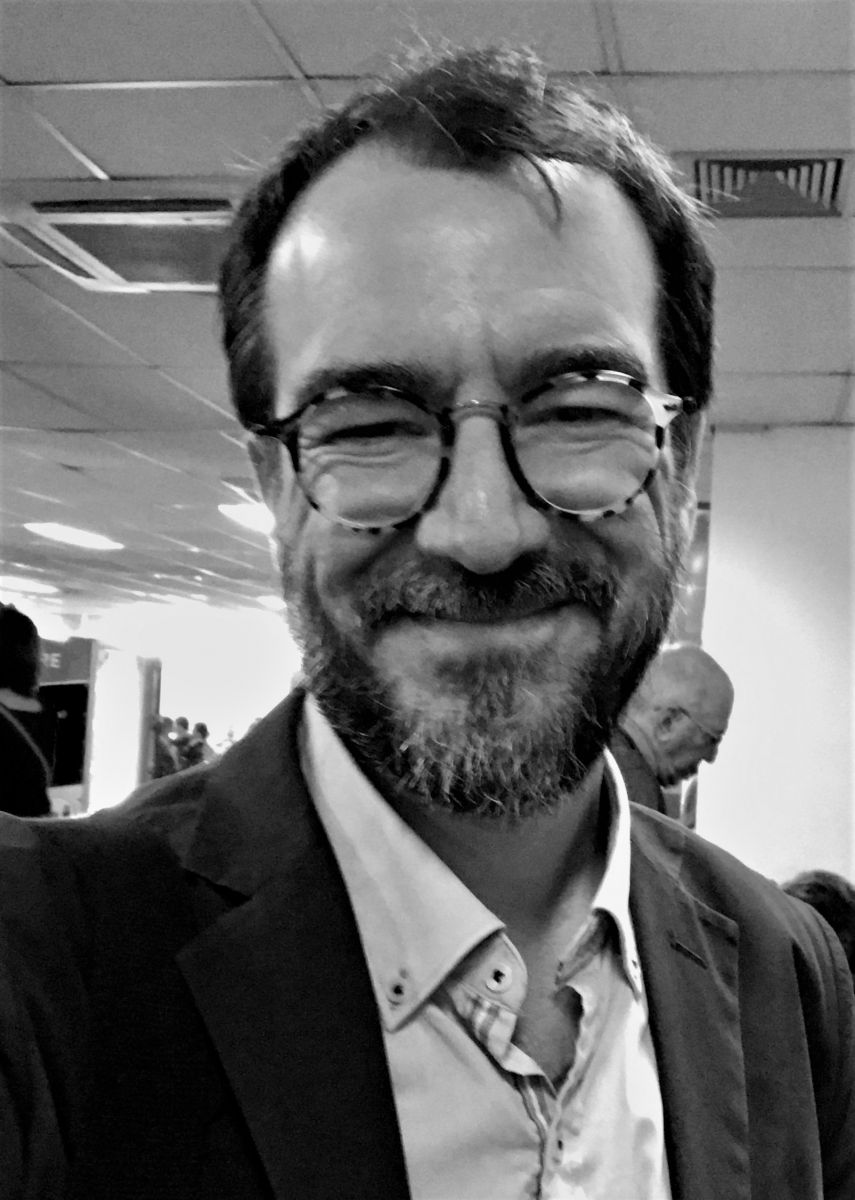
Jesús Sabariego holds a PhD in Human Rights and Development, with the thesis titled "Os Direitos Humanos no Fórum Social Mundial: Uma nova ecologia social da identificação entre cultura e política para os movimientos sociais (2001 - 2005)". Bachelor's degree in Humanities (Archaeology and History) and master's degree in Pedagogy aiming at educational qualification (Philosophy). Lecturer of Contemporary Political and Social History, in the degrees of Sociology and Political Science at the University Pablo de Olavide, until 2013. Coordinator (2001-2007) and lecturer (206-2008) of the Doctoral Programme in Human Rights and Development and in the Human Rights Group "José Carlos Mariátegui" (2004 - 2008), European Union and the UNESCO Chair in Social Participation. Visiting lecturer and researcher in universities of Latin America and Europe, a consultant for several public and third sector organizations. My research interests cover several subject areas within the Human Sciences. I conducted postdoctoral research funded by FCT on social movements. Currently, I am MSCA Researcher at the University of Sevilha. Some of my publications are: "Você tem Direitos! Os Direitos Fundamentais" (2001); "La globalización de las relaciones entre cultura y política: Una nueva ecología social de la identificación" (2005); "La democracia en proceso participativo: principios, fundamentos y requisitos" (2006); "Los otros derechos humanos. Cultura, política y movimientos sociales en el Foro Social Mundial" (2007); "Estudio cualitativo de las demandas culturales de los universitarios andaluces" (2011). As a translator, I was a member of the Spanish first edition team of the book "Crítica da Razão Indolente" (2003), by Boaventura de Sousa Santos.

Lia Tsuladze is an Associate Professor of Sociology, Faculty of Social and Political Sciences, Tbilisi State University, Georgia. She has been directing the Programme of Applied Social Research at Center for Social (CSS) since 2012 and became a Research Director and joined the CSS Board, in 2014. In 2016 she became an Executive Director at CSS. Lia is the author of more than 20 publications and 2 textbooks. Her current research deals with the political and popular discourses on Europeanisation in Georgia, focusing on how these discourses are performed for international vs. domestic audiences. Her former research, as part of her Post-Doctoral research fellowship at St. Antony's College, University of Oxford (2013-14), analysed Georgians' discourses of national identity in the context of Europeanisation. Her comparative research, carried out in 2011-12 and supported by Volkswagen Foundation, focused on the young people's perceptions of Europeanisation in the New European countries (the cases of Romania and Poland) and their borderlands (the case of Georgia).
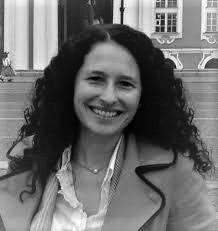
Maria Raquel Freire is a researcher at the Centre for Social Studies and Professor of International Relations at the Faculty of Economics of the University of Coimbra. She is a Jean Monnet Chair and Coordinator of the Jean Monnet Centre of Excellence at the University of Coimbra and leads as principal investigator CES’ team on the MEDIATIZED-EU research project. She is also Visiting Professor in the Post-Graduate Programme in International Relations, Federal University of Santa Catarina, Brazil. She is the President of the Faculty of Economics' Assembly, a member of the Scientific Council for Social Sciences and Humanities of the Portuguese Foundation for Science and Technology, and member of the European Science Foundation College of Expert Reviewers. Her research interests focus on peace studies, particularly peacekeeping and peacebuilding; foreign policy, international security, Russia and the post-Soviet space.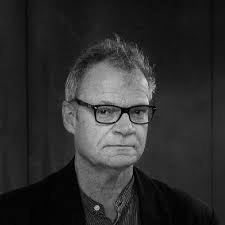
Oscar Hemer is Professor of Journalistic and Literary Crearion. Dr. Philos. in Social Anthropology at the University of Oslo (2011) on the dissertation "Fiction and Truth in Transition : Writing the present past in South Africa and Argentina" (Lit Verlag, 2012). Writer of several novels and with a twenty year experience as an arts journalist and editor. He was the initiator of the one-year Master program "Communication for Development" and its coordinator from the inception in 2000 to 2014. His latest own works are the novel Misiones (2014), which finalizes his Argentina Trilogy (Cosmos Aska, 2000; Santiago 2007), and the the experimental literary anthropology monograph Contaminations & Ethnographic Fictions: Southern Crossings (Palgrave Macmillan 2020). The latter is the result of a largely self-financed research project on racialisation and creolisation in South Africa, which he started as a visiting research fellow at Stellenbosch Institute for Advanced Study (STIAS) in 2015. In parallel with his own research, Hemer has lately been the coordinator of the research network Conviviality at the Crossroads, a collaboration between Malmö University and Bard College Berlin. The network has produced an open source anthology by the same title (Palgrave Macmillan 2020), co-edited with his MAU colleagues Maja Povrzanovic Frykman and Per-Markku Ristilammi. The network is now part of the research platform Rethinking Democracy (REDEM), for which Hemer is one of the coordinators. He is also a literary translator (from Spanish) and co-editor, with Lasse Söderberg, of the collected works in Swedish of Jorge Luis Borges (three volumes, 2017, 2019 and 2020).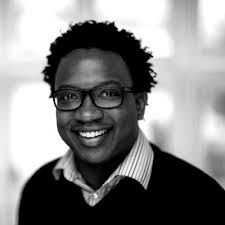
Simukai Chigudu is Associate Professor of African Politics and Fellow of St Antony's College. He is principally interested in the social politics of inequality in Africa, which he examines using disease, public health, violence, and social suffering as organising frameworks for both historical and contemporary case studies. He is finishing a monograph entitled The Political Life of an Epidemic: Cholera, Crisis and Citizenship in Zimbabwe, which is a study of the social and political causes and consequences of Zimbabwe's catastrophic cholera outbreak in 2008/09, the worst in African history. He has published articles in a number of peer-reviewed scholarly journals including African Affairs (forthcoming), Global Health Governance, Health Economics, Policy and Law, the International Feminist Journal of Politics, Health Policy and Planning, Seizure: The European Journal of Epilepsy, Feminist Africa, and The Lancet. His academic background is eclectic having received training in Medicine at Newcastle University, Public Health at Imperial College London, and African Studies at the University of Oxford before completing his DPhil at ODID. He has previously worked and conducted research in Zimbabwe, Uganda, The Gambia, Tanzania and South Africa. Prior to academia, he was a medical doctor in the UK's National Health Service where he worked for three years.
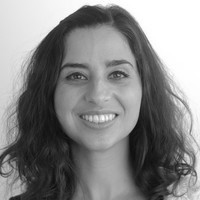
Sofia José Santos is an Assistant Professor in International Relations at the Faculty of Economics of the University of Coimbra, and a Researcher at the Center for Social Studies in Coimbra, where she coordinates the DeCode/M project as Principal Investigator. She is currently the co-coordinator of the PhD Program in Democracy in the Twenty-First Century. Since 2008 she has undertaken research on media and international relations; media and securitisation; internet and technopolitics; and media and masculinities from a critical theory perspective. Within CES, she is also part of the team of the research projects MEDIATIZED-EU, (De)Othering and PARENT. Sofia holds a PhD in International Politics and Conflict Resolution from the University of Coimbra, and a Diploma in Advanced Studies in Communication Sciences from ISCTE-IUL. Previously, she was a visiting scholar at the Flemish Peace Institute and a Marie Curie fellow at the Universiteit Utrecht.
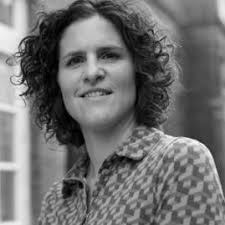
Stefania Milan is Associate Professor of New Media and Digital Culture at the University of Amsterdam. She is the Principal Investigator (PI) of the DATACTIVE project (European Research Council Starting Grant No 639379), Co-Principal Investigator of the e-LADDA project (Marie Sklodowska-Curie Actions Grant No 857897) and Project Leader of Citizenship and Standard-Setting in Digital Networks (NWO Grant No MVt.19.032). She is also the principal of the DATACTIVE Ideas Lab. She holds a PhD in Political and Social Sciences from the European University Institute (EUI), Italy (2009).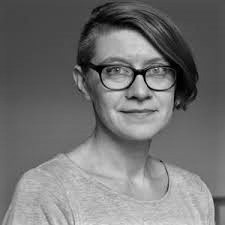
Tanya (Tetyana) Lokot is Associate Professor in Digital Media and Society at the School of Communications. She researches protest and digital media in Ukraine and Russia, as well as internet freedom, censorship and internet governance in Eastern Europe. Her book, Beyond the Protest Square Digital Media and Augmented Dissent, is forthcoming in early 2021. Tanya received her PhD from the Philip Merrill College of Journalism at the University of Maryland. Her dissertation research about the Euromaidan protests in Ukraine and augmented dissent focused on how protesters in a post-Soviet country understand and harness the affordances and limitations of digital technology to augment their tactics and protest outcomes. Tanya's research has been published in Information, Communication & Society; Social Media + Society; Digital Journalism; Surveillance & Society and Irish Studies in International Affairs. Until 2016, she wrote the Ukraine chapter for Freedom House's Freedom on the Net report, and she currently contributes research to the Ranking Digital Rights Corporate Accountability Index. She has presented her research at multiple international conferences and her writing has appeared in The Guardian, The Washington Post and The Moscow Times, among others. She is on the Board of Directors for the Theorizing the Web conference. Among other things, she chairs the ECREA Media, Cities and Space Section and is on the Editorial Board of the Mediapolis Journal. Tanya has worked as a journalist, non-profit consultant, and media trainer in Ukraine, Belarus, and Georgia, and speaks fluent English, Russian, and Ukrainian. From 2014 to 2016 she was contributing editor for the RuNet Echo project at Global Voices. From 2004 to 2012 she was Assistant Professor and Head of New Media Sequence at Mohyla School of Journalism (NaUKMA, Kyiv, Ukraine).

Teresa Almeida Cravo is an Assistant Professor in International Relations at the Faculty of Economics and a Researcher at the Centre for Social Studies, at the University of Coimbra, Portugal. She is currently the head of the University’s International Relations Department and the coordinator of its undergraduate degree in International Relations. Teresa holds a PhD from the Department of Politics and International Studies of the University of Cambridge. In recent years, she has been an Academic Visitor at the African Studies Centre of the University of Oxford, a Visiting Fellow at the University of Westminster, in London, and at the University of Monash in Melbourne. She was also an Associate of the Belfer Center for Science and International Affairs, at the Harvard Kennedy School of Government, after holding a Predoctoral Fellowship at their International Security Program and the Intrastate Conflict Program. Her research interests include critical perspectives on peace and violence, security, development, global interventionism and foreign policy, particularly within the Lusophone context, as well as poststructuralism and discourse analysis.
Thomas Tufte is an internationally leading scholar in the field of communication for social change. Professor Tufte's expertise and experience lie in critically exploring the interrelations between media texts/flows/genres, communicative practices and processes of citizen engagement and social change. His long-standing research interests have evolved around two key areas: qualitative audience studies and communication for social change research, often times combining the two. Thomas has led 7 international research projects in the field (between 1992-2017), having sat on numerous editorial boards, and worked in about 30 countries worldwide. He has collaborated with a broad range of organisations in international development cooperation, such as World Bank, UNICEF, UNESCO, USAID and many more. His publications include 15 books (3 monographs, 12 edited volumes) and more than 50 journal articles. Professor Tufte works in both English, Spanish, Portuguese and Danish and his work is published widely in these languages. Originally trained as a cultural sociologist Tufte started his work life in international development cooperation, first as a stagiaire with UNESCO in Paris in the late 1980s, then a communication officer in the largest Danish NGO, Danchurchaid, and later working for UNDP in Paraguay. After about 6 years of development practice he wrote a PhD in media studies focusing on the role of television fiction in the lives of low-income women in Brazil. He then embarked on an academic career in Denmark where he worked as an assistant professor and associate professor at the University of Copenhagen (1996-2004), subsequently as a professor at Roskilde University for 12 years (2004-2016). In 2008 Thomas co-founded the bi-national research centre 'Orecomm - Centre for Communication and Global Change' which organized yearly 'festivals' (2011-2016) that quickly became important international venues for debate, dialogue, performance and agenda-setting in research and practice within communication for development and social change. Thomas Tufte joined Loughborough from a position as Research Director at the School of Media, Communication and Sociology at University of Leicester.

Tiago Lapa is an Assistant Professor and researcher at CIES-IUL, in the area of communication, in the Department of Sociology of the School of Sociology and Public Policy of ISCTE - Instituto Universitário de Lisboa. Coordinates and/or teaches curricular units in the fields of digital sociology, communication and online methods of inquiry. He has around 10 years of experience in academic teaching in the area of sociology and communication sciences, having taught curricular units such as Sociology of Communication, Communication Theories and Communication Skills at ISCTE-IUL, but also in other national institutions, such as the ESECS of Polytechnic Institute of Leiria and the European University - Portugal. It is also in this area that he has carried out supervisions of master and doctoral studies, collaborated as a reviewer in publications and participates in COST and Erasmus + programs and in international scientific networks such as the World Internet Project and the European Media Coach Initiative, related to Internet studies, the digital divide and new media literacy. It also belongs to the advisory council of the Safe Internet Center of the Portuguese Foundation for Science and Technology (FCT). His scientific work has been published in the form of books, chapters and articles in indexed journals of international circulation.
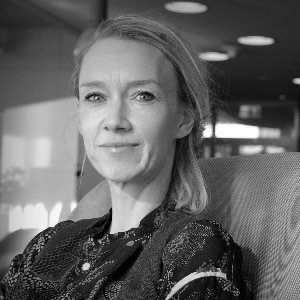
Tina Askanius is Associate Professor in Media and Communication Studies at the School of Arts and Communication, Malmö University, where she is also the co-director of the interdisciplinary research platform Rethinking Democracy www.mau.se/redem. She holds a PhD in Media and Communication Studies from Lund University, Sweden where she defended the thesis Radical Online Video. YouTube, video activism and social movement media practices in November 2012. Her research broadly concerns the interplay between media and social movements and she has published extensively on these matters in the context of social movements challenging racism, sexism and climate justice as well as ultra-nationalist and neo-Nazi movements in Scandinavia. She is currently working on a 4-year research project on the digital media practices of takfiri movements and extreme-right movements in Sweden (MMW 2018-2021) and an international project comparing white supremacist movements in Sweden and Canada (MSB 2020-2013).

Tommaso Venturini is a researcher at the CNRS Centre for Internet and Society. He is also associate researcher of INRIA and of the médialab of Sciences Po Paris and founding member of the Public Data Lab. In 2017 and 2018, he has been a researcher at the École Normale Supérieure of Lyon and recipient of the “Advanced Research” fellowship of the French Institute for Research in Computer Science and Automation. In 2016, he has been a “digital methods lecturer” at the Department of Digital Humanities of King's College London. From 2009 to 2015, he has coordinated the research activities of the médialab of Sciences Po Paris. His research activities focus on: Digital Methods, Digital Media Studies, Controversy Mapping, Science & Technology Studies, Social Modernization and he has been the leading scientist of the projects EMAPS and MEDEA and responsible for the Axis 1 of the project FORCCAST. Tommaso teaches Controversy Mapping, Digital Methods, Data Journalism, Data Activism and STS at graduate and undergraduate level. He has been trained in sociology and media studies at the University of Bologna, completed a PhD in Society of Information at the University of Milano Bicocca and was a postdoc in Sociology of Modernity at the Department of Philosophy and Communication of the University of Bologna. He has been visiting student at UCLA and visiting researcher at the CETCOPRA of Paris 1 Pantheon Sorbonne. During his studies, he founded a web design agency and worked on several online communication projects.

